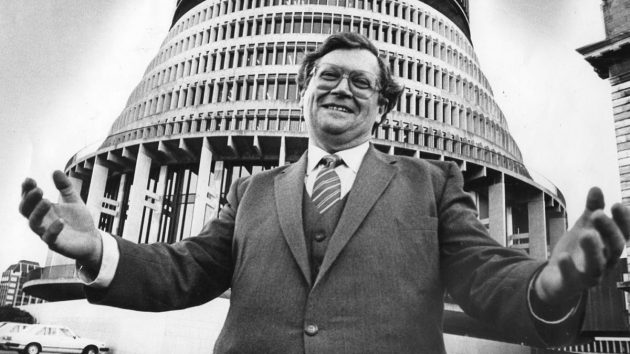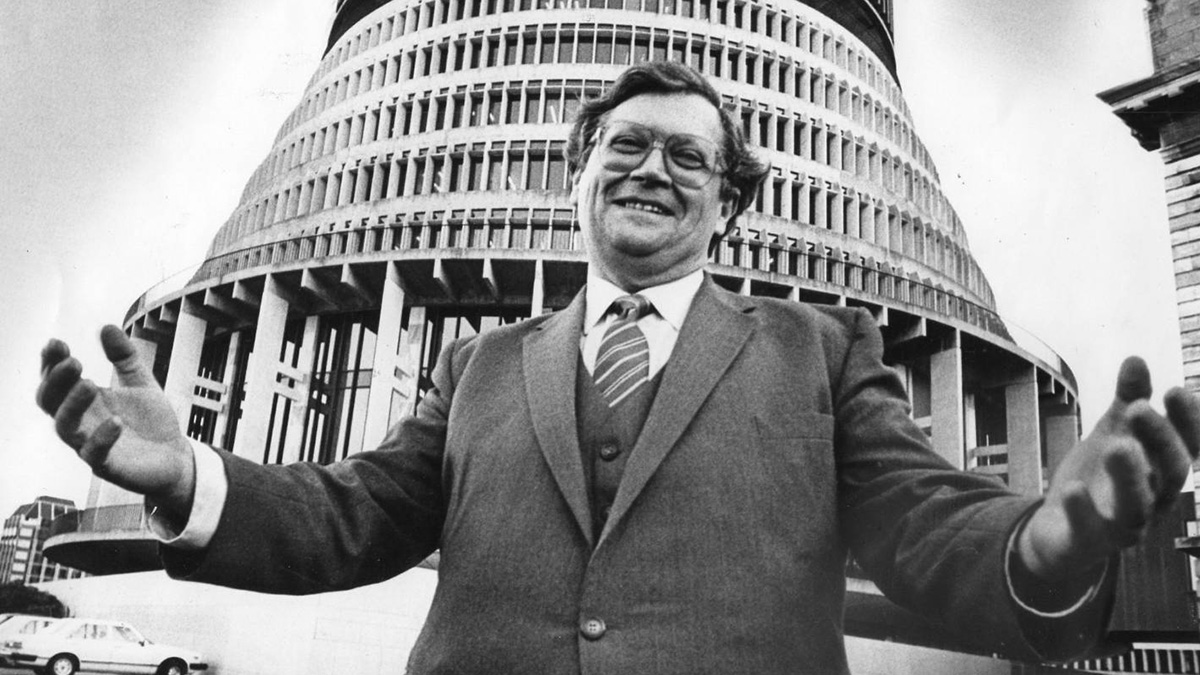Australia is perhaps unique among Western nations in not having guaranteed freedom of speech. The United States is famous for its First Amendment, Great Britain has a common law right, even New Zealand has its Bill of Rights (which its government seems increasingly determined to ignore). But Australia? Nothing.
Nothing, except an “implied” right to freedom of political speech.
And, thanks to legal action from a New Zealand prime minister, we almost lost even that.
The Australian High Court is the highest court in Australia: it is the final court of appeal and it also interprets the constitution. In the early 90s, the High Court made a number of rulings that went some way to conferring at least a limited freedom of speech for Australians.
In 1992, in Australian Capital Television Pty Ltd v Commonwealth, the High Court ruled that, although the Australian Constitution did not explicitly protect freedom of speech, the system of representative government that it provided for meant that a right to freedom of political communication. Although the plaintiffs had argued that, as other parliamentary democracies guaranteed freedom of speech, the same should apply in Australia, the High Court disagreed.
Instead, the Court expressed the view that the reason why Australia does not have a bill of rights is because the framers of the Constitution believed that since Australia had a system of representative government, which gave all voters an equal share in political power, laws to protect rights were simply not necessary. To undermine the system of representative government was contrary to this trust which the people gave to the Parliaments, and was not permitted by the Constitution. Although this right is not an absolute one, it is still a right which allows for free and public political discussion.
Another landmark case followed in 1993, with Theophanous v Herald & Weekly Times Ltd.
When conservative firebrand Bruce Ruxton wrote that Theophanous “appears to want a bias shown towards Greeks as migrants”, Theophanous sued the Herald and Weekly Times and Ruxton for defamation.
Building on its previous decision, the High Court reaffirmed that there was an implied constitutional freedom to publish material discussing government and political matters as well as the way that members of the Parliament of Australia conducted their duties and their suitability for office.
Four years later, that almost all went out the window, thanks to a legal action from then-New Zealand prime minister David Lange.

In 1990, the Australian Broadcasting Corporation broadcast a Four Corners report which alleged that the New Zealand Labour Party, then in government, had come to be improperly under the influence of large business interests, as a result of those interests making large donations to New Zealand Labour’s 1987 election campaign funds. Prime minister and Labour leader David Lange immediately sued, claiming that the report conveyed the false and defamatory imputations against him.
The report, Lange said, implied that, as Prime Minister, he had permitted big business donors to dictate government policy; had allowed public assets to be sold to some of those donors in repayment for their donations; had abused, and was unfit to hold, public office, and was corrupt and deceitful.
In the four years since Theophanous, the composition of the High Court changed considerably. The “Brennan” court had several changes in its membership, despite only lasting three years, and decided many significant cases – including Lange’s.
In finding that the ABC had defamed Lange, the Court unanimously reversed the opinion of Theophanous. It held that no direct right to free speech could form a defence to defamation. The Court also narrowed the scope of “political communication” to mean only matters that could affect Australian citizens’ choice at elections, or the affairs of federal ministers and the executive.
In Lange v Australian Broadcasting Corporation, the Court sought to clarify the interaction between the implied freedom of political communication and defamation laws, and the applicability of the implied freedom to state as well as commonwealth matters. The implied freedom was held to be an ongoing freedom, and not limited to election periods. The freedom’s purpose is grounded on the functioning of democratic and responsible government, requiring freedom of communication between the voters and their representatives. The continuous nature of the freedom is justified by the concept of representative government, requiring the freedom to operate continuously, and not merely during election periods.
Perhaps most importantly, though, the implied freedom was held to be a negative right, not a grant of a free-standing positive right.
As I’ve written before, the difference between negative and positive freedom is subtle, but important. A positive freedom is the “freedom to” – rights that the state decides citizens may have. On the other hand, negative freedoms are the “freedom from” – those rights that the state cannot take away.
So, while Australians do have some right to freedom of speech, it is not explicit – only implied. In spite of the narrowness imposed by the High Court in Lange, the implied right remains, if in only the most fragile sense imaginable.
The High Court in 1992 and ‘93 drew the longest bow imaginable to find the implied right. Lange in 1997 showed how easily an implied right can be pared back – if not stripped away.
If you enjoyed this BFD article please consider sharing it with your friends.

